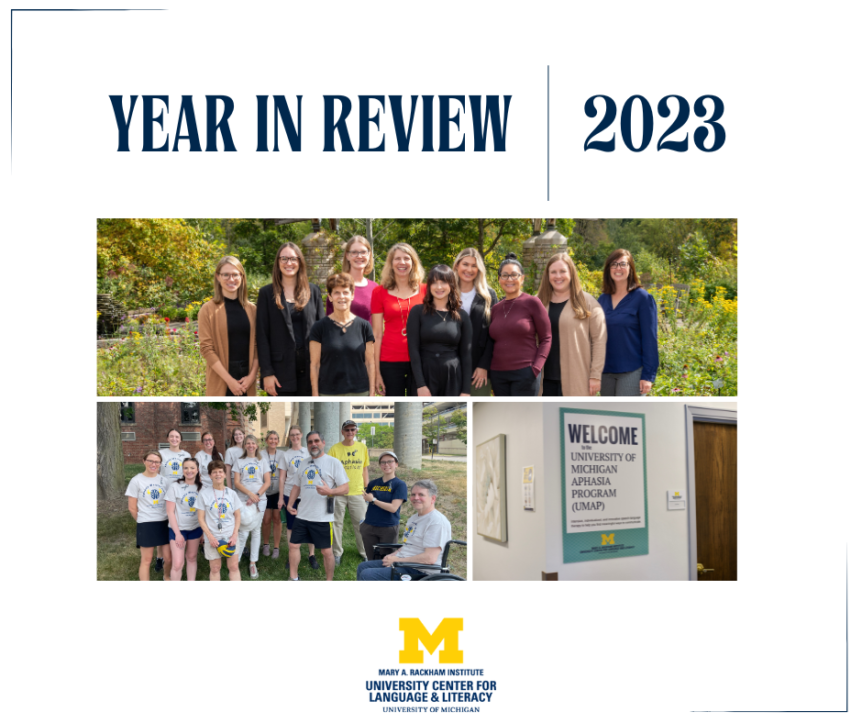Aphasia is a multifaceted condition. Not only does it affect language, but it also has a strong impact on mental health. Depression, anxiety, and other reactions can impact both the person with aphasia and their family relationships and quality of life.
Yet, there are only minimal resources available to help clients and their families. The stigma surrounding aphasia, a national shortage of mental health professionals, and a lack of resources contribute to the problem, but the biggest issue is that even in the mental health world, many professionals have no idea what aphasia is or how to treat it. Essentially, the current belief is how can a therapist who practices talk therapy work with someone who struggles to talk?
Recognizing this great need, in 2023 we centered our fundraising efforts on mental health for those with aphasia and their families.
Through the generosity of our donors, our University of Michigan Aphasia Program (UMAP) was able to begin tackling this issue.
- Dr. Carol Persad gave a talk entitled Impact of Aphasia on Care Partners as part of the National Aphasia Association “Ask the Expert” series, which was very well received by attendees.
- We started a free monthly virtual support group for care partners for former UMAP clients. This has been well attended and offers a safe space to discuss issues and get support from others.
- We partnered with Stroke Onward, whose mission is to raise awareness and increase mental health resources for those who have experienced a stroke and aphasia. Together we are developing resources for families and tools to teach mental health providers how to interact with people who have communication challenges.
- We continued to research the unique issues that care partners face when dealing with aphasia, that can help guide mental health treatment initiatives, and we anticipate the findings to be published later this year.
But our work won’t stop there. This year, a primary goal is to work with mental health providers to increase their confidence when interacting with clients who have communication difficulties. Our aim is to teach supportive communication strategies that can be used in therapy as well as help them modify clinical approaches when working with someone with aphasia.
Ways that we will accomplish this include:
- Giving presentations at mental health conferences to educate clinicians about aphasia and ways to communicate with clients
- Working with our partners to continue to develop resources to share with clients, their families, and mental health providers
- Connecting with graduate programs who are training future mental health clinicians to help educate them on aphasia and the need for mental health services in this population
We are grateful to have you as part of our aphasia community and deeply appreciate the support that you have given us. Please look out for the next email that shares our new fundraising focus for 2024 and how with your help, UMAP can continue the important work of helping improve the lives of people and their families who are experiencing aphasia.
If you have any questions, feel free to reach out to us at ucll@umich.edu.
Sincerely,
Carol Persad, Ph.D.
This email was sent to supporters of the University Center for Language and Literacy (UCLL) and the University of Michigan Aphasia Program (UMAP). Didn’t receive it? Sign up for our emails here.
About the U-M Aphasia Program and UCLL
The U-M Aphasia Program (UMAP) provides intensive, comprehensive speech-language therapy for people with aphasia, caused by a stroke, brain injury, illness, or other neurological disorder. UMAP is part of the University Center for Language and Literacy (UCLL), which is committed to helping people of all ages find meaningful ways to communicate. UCLL is part of the Mary A. Rackham Institute (MARI) at the University of Michigan.

